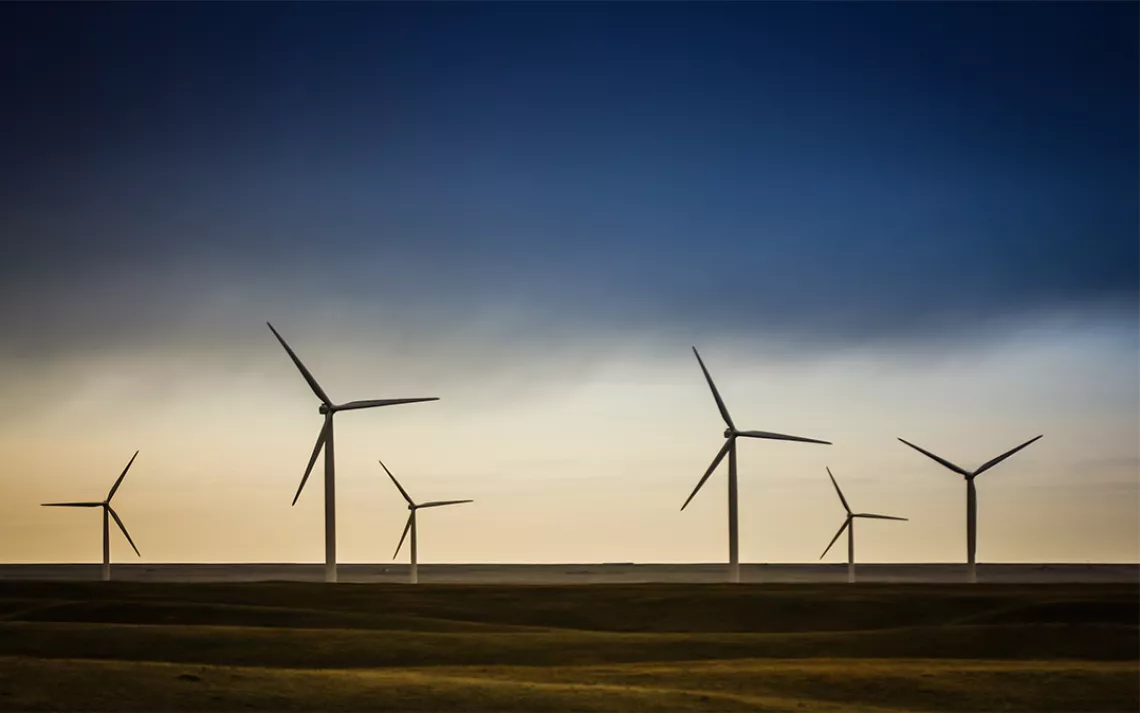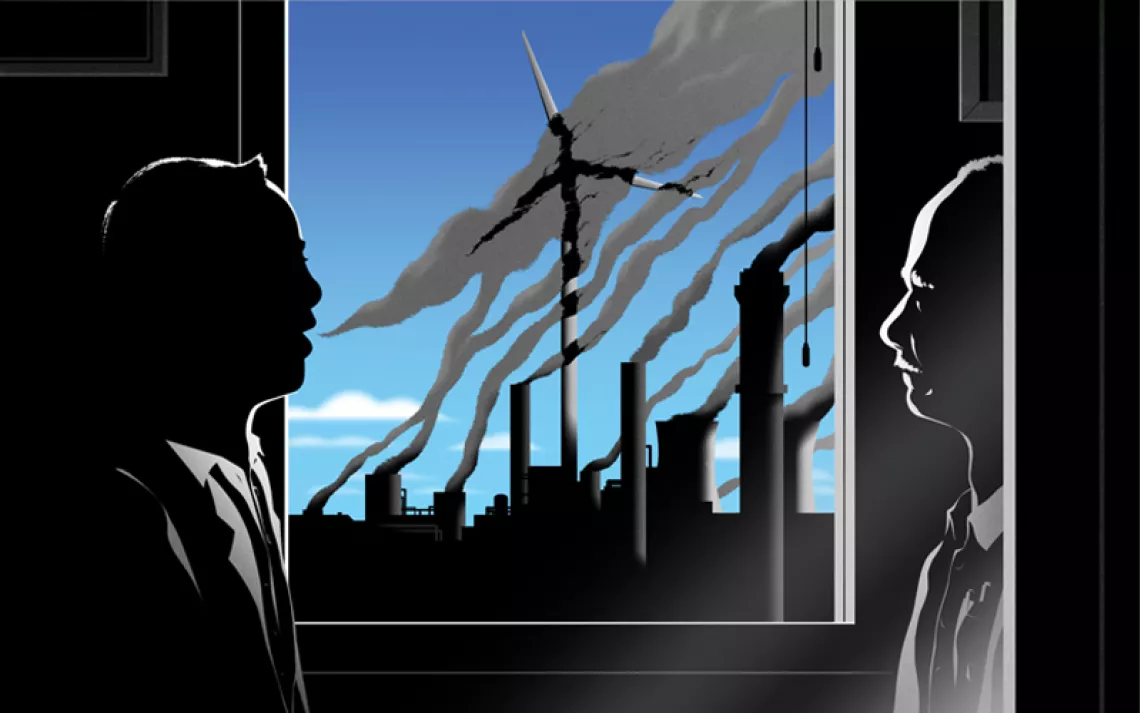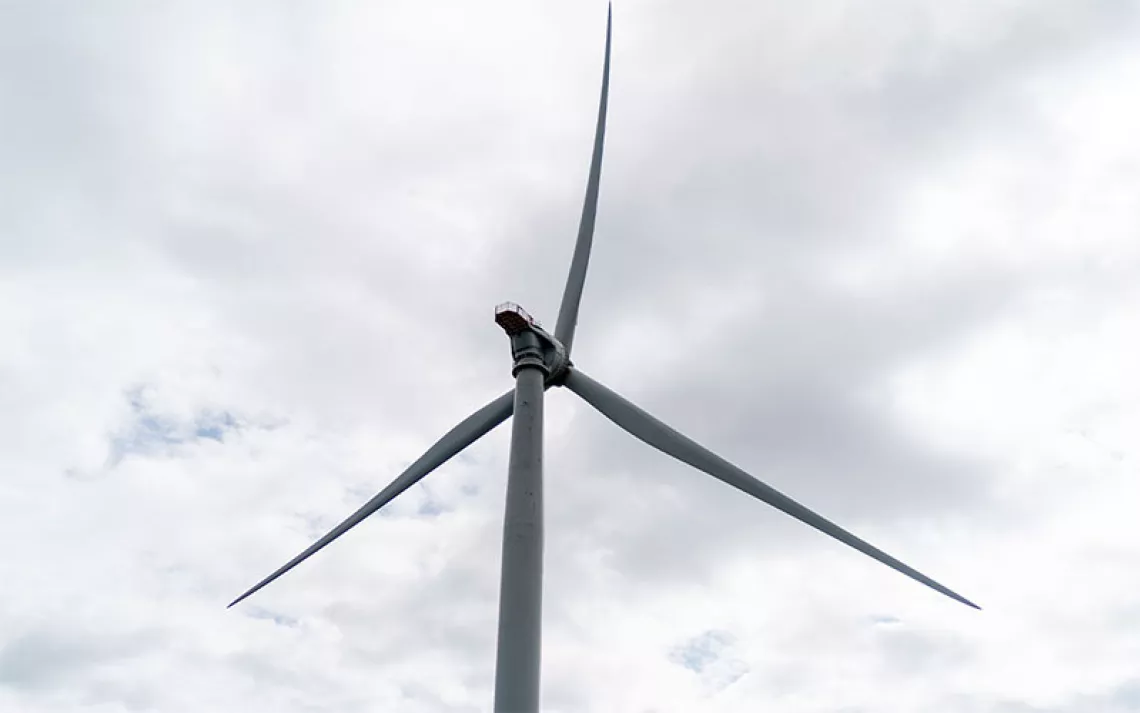Wyoming Tries to Prop Up Coal by Banning Clean Energy
Wind and solar power would be “noneligible” for state utilities

Photo by ToddSm66/iStock
Once upon a time, Republican legislators objected to government “picking winners and losers.” But today, with PEOTUS Donald Trump promoting companies he likes and tanking the stocks of those he doesn’t with a tweet, the GOP is not so shy about applying its thumb to the scales of the free market. In Wyoming, legislators have introduced SF 71—a bill that would ban state utilities from providing electricity generated by solar or wind farms, according to Inside Climate News:
The new bill mandates utilities to use “eligible resources” to meet 95 percent of the state's electricity needs in 2018 and then all of its power supply in 2019. Those sources are defined as coal, hydroelectric, natural gas, net metering sources (such as rooftop solar or backyard wind projects for homeowners and small business), nuclear, and oil. Using power from utility-scale wind, solar, and other renewable projects would be outlawed under this legislation.
Wyoming, with its vast coal reserves in the Powder River Basin, is the nation’s largest coal producer, but production is dropping as the country turns toward natural gas and clean energy.
On the other hand, the state also has, according to the American Wind Energy Association,
. . . one of the richest wind resources in the nation, with most of the wind potential waiting to be developed. With more than 1,400 megawatts of online wind capacity, the state ranks 15th in the nation in installations. By combining its potential wind resource with manufacturing expertise, Wyoming could become a powerhouse for the wind industry.
Coulda woulda shoulda—but not if SF 71 passes. Under this legislation, Wyoming’s big wind providers—in particular, Rocky Mountain Power and Black Hills Energy—would be shut out of the state’s own power market. Any clean-energy-tainted electricity delivered in-state would be subject to a penalty of $10 per megawatt-hour.
Black Hills Energy says, cautiously, that it’s still reviewing the bill’s implications. Spokesperson Dave Eskelsen affirmed that Rocky Mountain Energy opposes the bill but wants to meet with its sponsors “to understand their concerns and come up with something that works for all parties.”
What that might be is hard to imagine, as the Wyoming GOP seems intent on doubling down on coal. In the current issue of Sierra, Todd Wilkinson writes about how “instead of weaning the state's economy off coal revenues and helping workers transition to new industries, state officials are holding fast to climate change denial and are staking the state's future on the pipe dream of a coal revival.”
Connie Wilbert, director of the Sierra Club’s Wyoming Chapter, calls SF 71 “a very shortsighted reaction by some of our state leaders who are determined to stick with coal no matter what.” Their affection has a pecuniary base: Wyoming collects more than $1 billion a year from severance taxes paid by state coal companies, while the economic benefits from wind and solar come almost entirely from the construction phase.
“It’s really unfortunate that the state of Wyoming hasn’t invested in trying to build up other industries related to renewable energy, like the manufacture of wind turbines,” Wilbert says. “Colorado has been all over that, but Wyoming totally missed that boat.” Rallying citizens to defeat the legislation, she continues, will be one of the chapter’s top priorities in the coming year. She’s “cautiously optimistic” that Wyomingites will not shut the door on the future in the interest of propping up the past.
 The Magazine of The Sierra Club
The Magazine of The Sierra Club







